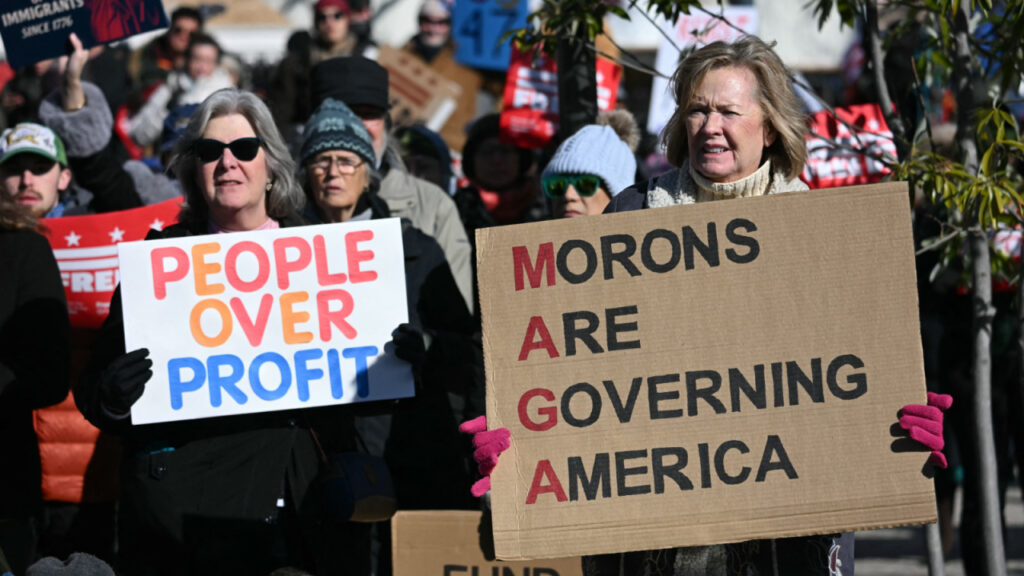
When Marina Spoke Up, Her Hours Got Cut. Now She’s Fighting for Workers’ Rights
When Marina Arriaga’s hours were slashed, it wasn’t because of bad performance. It happened after she chose to speak up for herself, for customers, and for a future where Latinas like her aren’t punished for surviving.
She’s undocumented, and a nursing student. She’s a worker on the frontlines of a system that, according to the Center for Equitable Growth, often clusters Latinas into the most underpaid, underprotected jobs in the country. And yet, she still raised her voice.
Marina is one of the faces of #Listen2Workers, a campaign by End Poverty in California (EPIC) and SEIU California that’s pushing lawmakers to hear directly from essential workers like her. Because when the laws don’t protect you, telling your story is one way to fight back.
Speaking up cost her hours, but silence was never an option
Before her shifts were cut, Marina had already learned that silence wouldn’t save her. “I knew staying silent wouldn’t protect me,” she told FIERCE. “I was already struggling, and being mistreated on top of that just wasn’t right.”
After she stood up for customer safety and fairness at work, management retaliated by taking away the few hours she relied on to make ends meet. Her immigration status blocked her from accessing federal support like FAFSA or EBT. Still, she spoke out.
“Speaking up wasn’t about being brave,” she said. “It was about survival, about dignity. I couldn’t allow myself to be walked on just because I’m young, Latina, or undocumented.”
Workers’ rights begin with being seen and believed
Marina says becoming part of #Listen2Workers has helped her reclaim space in a system that rarely acknowledges workers like her. “We’re the hands behind your meals, the caretakers in your hospitals, the backbone of many industries, yet we’re left out of the conversation,” she said.
EPIC, led by former Stockton mayor Michael Tubbs, focuses on changing the narrative around poverty by elevating voices that are usually erased. The campaign doesn’t just center labor organizing. It highlights how racial, immigration, and class barriers intersect to block entire communities from basic protections.
According to the Center for Equitable Growth, Latinas are disproportionately sorted into service jobs that offer little in terms of job security, benefits, or protections. Sectors like retail, food service, and caregiving often lack predictable schedules, safety standards, and union support, factors that define job quality.
The deeper crisis behind
Latino workers make up one of the largest segments of the U.S. workforce. But they also face some of the highest risks and lowest rewards. As reported by the Center for American Progress, women of Mexican, Dominican, Guatemalan, Honduran, and Salvadoran descent experience the widest wage gaps in the country.
Latina women are also overrepresented in occupations with high rates of labor violations and wage theft. According to data cited by the Center for Equitable Growth, these include food service, agriculture, and domestic labor, industries where many workers don’t receive overtime, paid leave, or even reliable schedules.
And for undocumented workers, these issues are compounded by fear. Fear of deportation, of losing what little income they have. Fear that no one will listen even if they do speak up.
“We carry guilt, pressure, fear, and responsibility,” Marina said. “But we’re not just surviving, we’re building futures. I want [others] to know it’s okay to feel tired, but never ashamed.”
Marina isn’t alone in demanding workers’ rights
The movement for labor justice has deep roots in the Latino community. From Emma Tenayuca’s pecan sheller strike in the 1930s to Dolores Huerta and the United Farm Workers in the 1960s, Latino workers have long fought for better pay, safer conditions, and union recognition.
Marina’s voice joins that lineage.
“We need more than just a seat at the table,” she told FIERCE. “We need protection, fair wages, and policies that reflect our humanity. I want society to stop calling us ‘illegal’ and start calling us what we are: hardworking people with dreams, families, and the right to live with dignity.”
Her words echo findings by the Latino Policy and Politics Institute at UCLA, which reports that union protections help shield workers, especially Latino workers, from unemployment, wage theft, and exploitation. Yet millions still lack access to these protections, particularly undocumented or mixed-status individuals.
Workers’ rights aren’t optional. They’re urgent
Marina doesn’t want to be celebrated for being strong. She wants the system to stop forcing her to be.
“I remind myself that I’m doing this for a future where I don’t have to struggle to survive,” she said. “My journey may be more challenging, but my purpose makes it worth it.”
Her story reminds us that workers’ rights are about more than wages or contracts. They’re about survival. They’re about dignity. And they start by listening.
To workers like Marina. To stories like hers. And to a future where speaking up doesn’t cost you your livelihood.




